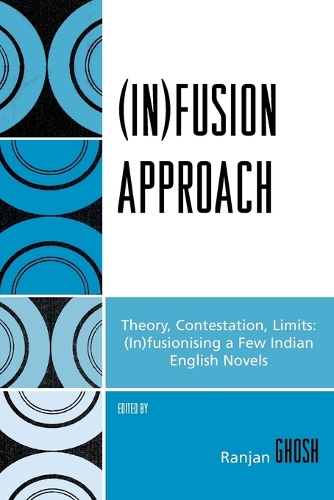
(In)fusion Approach: Theory, Contestation, Limits
(Paperback)
Publishing Details
(In)fusion Approach: Theory, Contestation, Limits
By (Author) Ranjan Ghosh
Contributions by Vikram Chandra
Contributions by J Hillis Miller
Contributions by Gayatri Chakravorty
Contributions by Ben Baer
Contributions by Homi Bhabha
Contributions by Grant Farred
Contributions by Kenneth Womack
Contributions by Paul Jahshan
Contributions by Bill Ashcroft
University Press of America
University Press of America
11th September 2006
United States
Classifications
General
Non Fiction
808.80358
Physical Properties
Paperback
352
Width 152mm, Height 230mm, Spine 27mm
540g
Description
Opposing all claims that theory has come to an end, this book presents a fresh perspective on our reading, understanding, and application of theory and its affect on our interpretation of texts. (In)fusion theory challenges efforts to see theory as inhibiting by presenting an approach that is innovative, eclectic, and subtle in order to draw out competing and constellating ideas and opinions. This collected volume of essays examines (In)fusion theory and demonstrates how the theory can be applied to the reading of various works of Indian English novelists such as Salman Rushdie, Amitav Ghosh, Anita Desai, and Vikram Seth.
Reviews
We have heard about the death of theory for a decade, but of course the real question is what are the possibilities of theory now. This volume, with its sterling cast of contributors, offers some answers. It argues for a programmatic heterogeneity, fusing theories without disciplinary prejudice. -- Jeffrey J. Williams, Editor, Editor,The Minnesota Review; Co-Editor The Norton Anthology of Theory and Criticism
Theory has always been interdisciplinary in its aims and purposes. But with the proliferation of Theory in the last decades, theories tended to degenerate into mere variants of the outmoded disciplinary approaches. So what we presently need, above all, is an interdisciplinary approach to Theory. This is what the (In)fusion paradigm proposed in this volume admirably realizes. It does so not only by means of theoretical reflection, but by also giving convincing examples of what the new paradigm may bringgg -- Frank Ankersmit, Groningen University
Theory has always been interdisciplinary in its aims and purposes. But with the proliferation of Theory in the last decades, theories tended to degenerate into mere variants of the outmoded disciplinary approaches. So what we presently need, above all, is an interdisciplinary approach to Theory. This is what the (In)fusion paradigm proposed in this volume admirably realizes. It does so not only by means of theoretical reflection, but by also giving convincing examples of what the new paradigm may bring -- Frank Ankersmit, Groningen University
Author Bio
Ranjan Ghosh is a Professor in the Department of English at Wroclaw University in Poland. He has published numerous articles on comparative aesthetics, critical theory, Indian English Literature, historical theory and Indian historiography.
